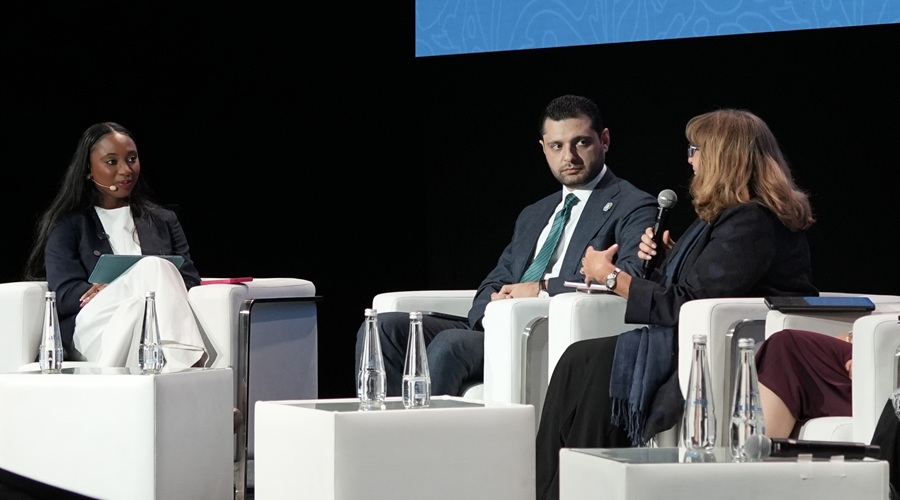Ashley Lashley, the newly appointed one of United Nations Secretary-General’s Youth Advisor on Climate Change, marked her first international engagement in this global role at the prestigious IUCN World Conservation Congress 2025 in Abu Dhabi.
Ashley was deeply honored to be invited as a speaker in several high-level sessions, joining ministers, CEOs, Indigenous leaders, and civil society advocates to discuss how the global community can accelerate climate and conservation efforts in the critical years ahead.
Among her key engagements was the Special Session: “Nature’s Promise for Climate & People — A Call and Commitment from the Conservation Community to Belém and Beyond,” a dialogue uniting global leaders to strengthen commitments to nature, people, and climate action.
She also participated in the “Alliances Fit for the Post-2030 Era – Driving the Next Wave of Multilateralism,” which explored new partnerships and alliances needed to sustain transformative environmental action beyond 2030 and was led by the IUCN President Razan Al Mubarak. This session featured the GEF CEO, IUCN Director General, and other international partners.
As a former Global Environment Facility Small Grants Programme (GEF SGP) recipient and passionate youth leader, Ashley shared her experiences on the power of civil society and youth-led organizations in creating scalable environmental solutions. She emphasized that meaningful youth engagement and access to resources are vital for building a sustainable and inclusive future.
Ashley also took part in the high-level session “One Health: The Only Healthy Future for People, Animals, and Ecosystems,” which highlighted the interconnectedness of human well-being, biodiversity, and ecosystem health. Speaking on the panel, she stressed that One Health solutions require protecting local environments, from Barbados’ coastal mangroves and coral reefs to urban green spaces across the Caribbean.
Ashley also spoke candidly about the relationship between capitalism and environmentalism, noting that:
“We live in a world where economic growth often comes at the expense of nature. To truly tackle climate change, we must rethink how capitalism can work with environmental stewardship — creating models where profit does not destroy the planet, but instead supports sustainable communities and healthy ecosystems.”
Her participation at the IUCN World Conservation Congress reinforces Caribbean youth representation on the global stage, highlighting the importance of youth voices in shaping climate and conservation policy worldwide, while advocating for sustainable economic models and the preservation of natural spaces both locally and globally.






